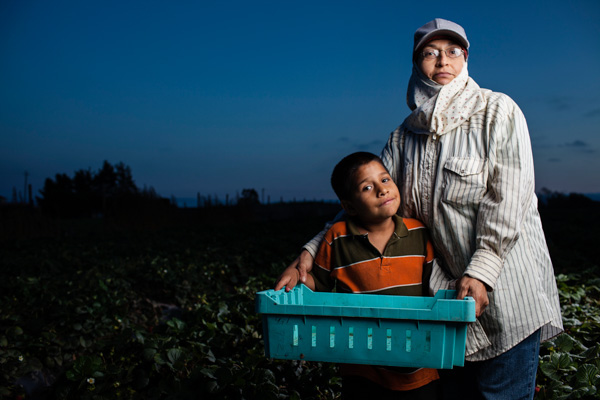
Photo /Dave Getzschman for Earth Justice
Recent interviews with California farmworkers conducted by Líderes Campesinas reveal that although considered essential to the U.S. economy, they are also the most vulnerable link in our nation’s food supply chain.
Among the reasons for this are:
1. Only a minuscule percentage are unionized
2. Over 50% are undocumented
3. Among their numbers many are from deep in Mexico, indigenous (Mixtecos, Zapotecos, Triqui, etc.), and suspicious of all governmental agencies—for obvious reasons. Thus, because of their distinct reality, farmworkers in large part do not qualify for benefits such as unemployment, food stamps or public/private medical insurance. Many are saddled with medical debts, as high as $40,000 or more; and are unable to pay.
But as the rhyme goes, I owe, I owe, so off to work I go! And they do! – despite their burdens, insecurities, reductions in work hours, risks of infection with coronavirus, and growing fear. Ironically too, while they are busy picking our fruit and vegetables, food shelves are being emptied by us, full-fledged citizens.
The long and short of it is that farmworkers live an intolerable and inhumane mode of life. In the midst of National Farm Workers Awareness Week and the advent of César Chávez Day, let us commit to focusing on the special needs of those that continue to put food on our tables, the very workers César once led.

Good hearing from Irene de la B.
Perhaps links to you tube or other video work.